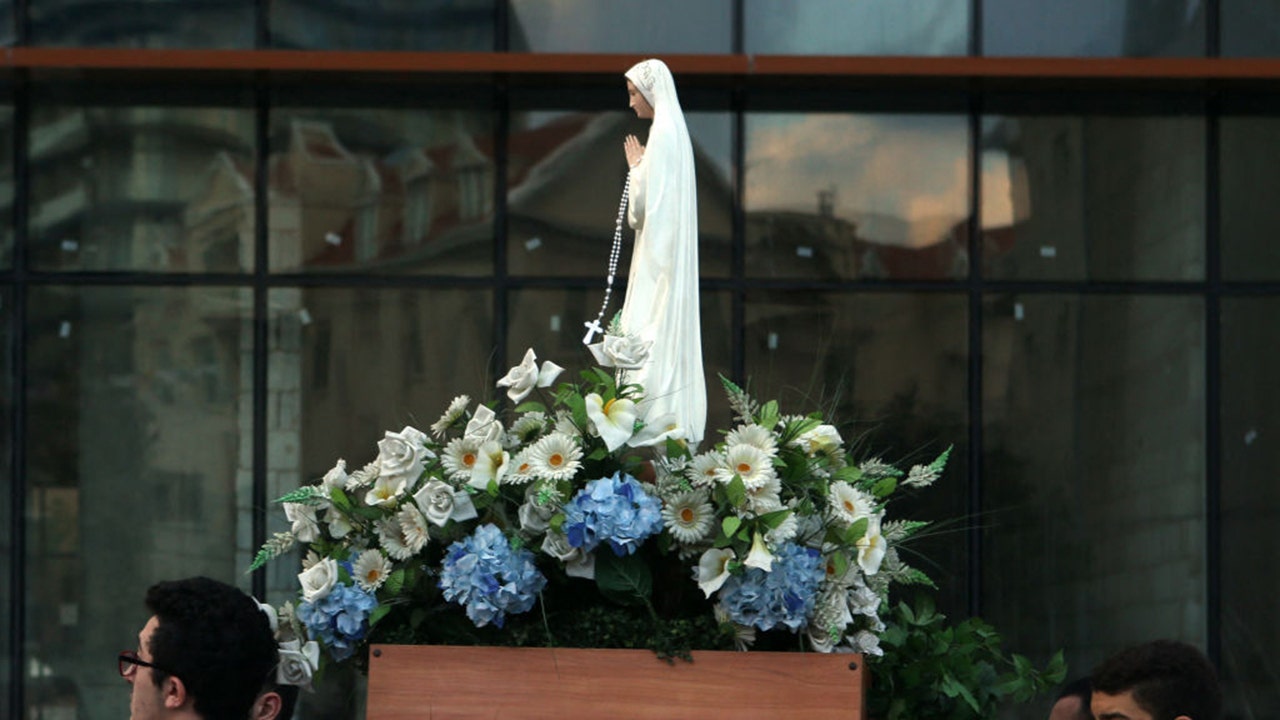A week after Russia invaded Ukraine, in March 2022, a host of the British podcast “The Rest Is Politics” explained what it was like to be in a room with President Vladimir V. Putin.
Alastair Campbell, who worked as the director of communications and strategy in Tony Blair’s Labour government, said that when he first met Russia’s president in 1999, he was “almost timid, very slight, very small, quite quiet.” But Putin’s aggression increased over time, Campbell said on the podcast, and at a dinner in 2003, the president had hurled abuse at Blair. Putin didn’t say that the British prime minister was George W. Bush’s poodle, “but he wasn’t far-off,” Campbell recalled.
This discussion, which opened the show’s first episode, revealed a key appeal of “The Rest Is Politics”: its hosts’ political résumés. Campbell and his co-host Rory Stewart, a former Conservative lawmaker, draw on their time in government to explore the issues of the day under the unofficial banner of “disagreeing agreeably.”
The emphasis on civility and the show’s centrist leanings have made “The Rest Is Politics” one of the most popular podcasts in Britain over the last two years. In the glow of that success, other former politicians have followed suit, with podcasts that join forces from across the aisle at a time when many believe that politics in the country is overly polarized.
Jack Davenport, the managing director of Goalhanger, the production company behind “The Rest Is Politics,” said that “people are craving reasonable voices who clearly have thought deeply about these issues, and have the room to express those thoughts in a measured way.” This feels especially “refreshing to those of us used to doomscrolling Twitter,” he added.
In early 2022, a Goalhanger executive suggested Campbell host a podcast alongside a Conservative politician. “I don’t really like Tories,” Campbell recalled saying, using a colloquial name for Conservatives, “and I’ve moved on from politics.” But after coming around to the idea, he crowdsourced suggestions for co-hosts on Instagram Live; Stewart’s name kept coming up.
Stewart had lost a 2019 Conservative Party leadership race to Boris Johnson and later dropped out of a contest to unseat the mayor of London, the Labour politician Sadiq Khan. He is also a former diplomat, known for his critically acclaimed 2006 book, “The Places In Between,” which charts a journey he took across Afghanistan.
When it launched, the show’s audience grew quickly. In the first year, “The Rest Is Politics” seemed “more like a movement than a podcast,” Davenport said.
The podcast now averages 600,000 downloads an episode, according to Goalhanger. And Campbell and Stewart host a spinoff interview podcast called “Leading,” where their guests have included Hillary Clinton and Bill Gates.
In October, the hosts will travel across Britain on a live tour that includes a date at the O2 Arena in London, which typically hosts artists like Olivia Rodrigo and the Jonas Brothers. Sixty percent of the tour’s 33,000 tickets sold in three weeks, according to Goalhanger.
It is little wonder that similar podcasts are trying to replicate the magic. Peter Mandelson, a former Labour cabinet minister hosts “How to Win an Election” alongside a former Liberal Democrat policy adviser and a Conservative member of the House of Lords.
“Electoral Dysfunction,” featuring the Labour member of Parliament Jess Phillips, Ruth Davidson, a former Scottish Conservative leader, and the journalist Beth Rigby, launched earlier this month, bucking the trend for such podcasts to be hosted by white men.
Then there’s “Political Currency,” hosted by Ed Balls — a former Labour cabinet minister — and George Osborne, a former chancellor of the Exchequer under the Conservative Prime Minister David Cameron, and the current chairman of the British Museum.
For several years, before Balls lost his parliamentary seat in 2015, Balls and Osborne were contemporaries, and rivals, in parliament — at one point, both led the economic policy for their parties. Hosting the podcast together feels different from those days, Balls said — but “it’s not the same as being soul mates or ideological bedfellows.”
Some listeners might think of these politicians-turned-podcast hosts as prime examples of the “centrist dad”: a middle-class, middle-aged British moderate who, perhaps smugly, worries about the brokenness of politics in the shadow of the Brexit referendum. (Balls plays in a band called Centrist Dad.)
Other listeners might feel resentment toward the hosts. Osborne’s legacy is tied to the government budget cuts, or austerity policies, he brought in during the 2010s. Some commentators have seen his new hosting gig as an attempt to revamp his reputation.
The same accusation has been leveled at Campbell, who worked alongside Blair in the lead-up to the 2003 invasion of Iraq. Before the podcast, his public image was influenced by Armando Iannucci’s BBC satire “The Thick of It,” in which the character of Malcolm Tucker, an aggressive government communications director, was partly inspired by Campbell.
“There are people who will say, I’m doing it to give myself a softer and cuddlier image, and I’m genuinely not,” Campbell said. By being able to speak directly to an audience without the intervention of the media, “you remove the filters that normally prevent people from seeing who and what you are,” he said.
That ability to speak directly to listeners is also what attracted Phillips, a sitting member of Parliament, to hosting “Electoral Dysfunction,” she said. “To me the podcast format is one that I think has the best chance of political nuance,” she added.
With a general election looming at some point this year, politicians who lose their seat or decide not to stand again will be looking for their next professional act. In Britain, it seems like podcast is a low-investment, high-reward proposition. (If they are interested in producing more partisan content, the right-leaning TV network GB News has employed politicians like Jacob Rees-Mogg and Nigel Farage.)
But Balls has some guidance for those considering getting behind the podcast mic. “I wouldn’t advise someone to go and do it straight away,” he said. “I think you need some distance,” he added. “You might need to write a good, or a bad, memoir first.”






